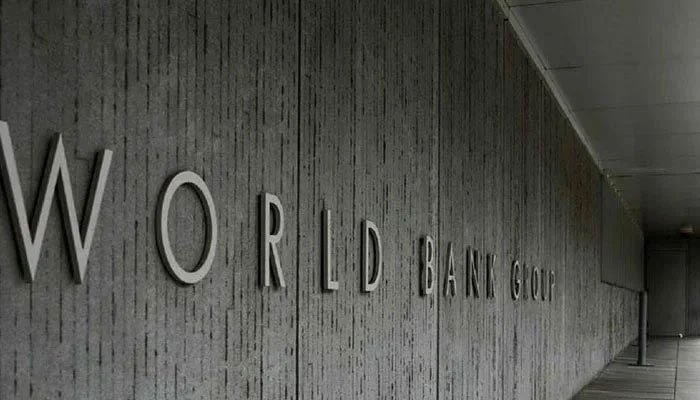Eyeing $8bn commitment, Pakistan starts fresh talks with WB
The discussions have not yet finalised the exact policy framework and period of the CPS
ISLAMABAD: Pakistan has kickstarted fresh negotiations with the World Bank (WB) for four-year Country Partnership Strategy (CPS) policy framework with the expectations that the Washington-based lender might commit $8 billion for major priority areas.
The CPS might cover from FY 2025 to FY 2029. The discussions have not yet finalised the exact policy framework and period of the CPS.
The CPS could not be finalised from fiscal year 2022 to 2026, because the elections and formation of the government took so much time. Now, the newly-elected government is in place, so it is negotiating with the WB new CPS for four to five years period expected to be finalised in next couple of months.
“The CPS for next four to five years will mainly focus on the priority areas and discussions are underway to finalise framework for major areas of upcoming funding in next five years,” top official sources confirmed while talking to The News on Monday.
Pakistan wants maximisation of disbursement in next three to four years period in order to align its external financing requirement under the next IMF programme. It is hoped that after striking agreement with the IMF under $6-8 billion for Extended Fund Facility (EFF), the WB’s CPS might help the country to muster up financial support from the WB in coming four years period.
Pakistan is also eyeing $2 billion portfolio with the World Bank’s visiting high-ups for next budget 2024-25 including seeking approval of $1 billion for additional loan for Dasu Hydropower Project. Just ahead of the upcoming visit of the IMF and announcement of the next budget, this ongoing visit of the WB high-ups gets immense importance.
According to a statement issued by the Ministry of Finance, South Asia Regional Vice President (SARVP) of the World Bank, Martin Raiser, called on Federal Minister for Finance and Revenue Senator Muhammad Aurangzeb at the Finance Division on Monday. The meeting was also attended by the Country Director of the World Bank (WB), Najy Benhassine, and senior officers from the Finance and Economic Affairs Divisions.
The finance minister briefed Mr. Raiser on the macro-economic situation of the country and efforts of the government for stabilisation of the economy. He outlined the government’s priority reform areas including increasing the tax-to-GDP ratio, reducing the costs in energy sector, SOE reforms, privatisation and human capital development.
Martin Raiser acknowledged Pakistan’s commitment to economic reforms and reiterated the World Bank’s readiness to extend technical assistance and financial support to facilitate the country in achieving its developmental objectives.
The finance minister requested the World Bank vice president to align country partnership framework of WB with the priority reform areas of the government of Pakistan. Martin Raiser acknowledged the request and stated that the World Bank Group will provide necessary support to the government of Pakistan in implementing its reform agenda in energy sector, boosting exports, microfinance, building climate resilience and social protection. The meeting concluded with both sides reaffirming their commitment to strengthening the partnership for the betterment of Pakistan’s economy and its people.
-
 Jonathan Majors Set To Make Explosive Comeback To Acting After 2023 Conviction
Jonathan Majors Set To Make Explosive Comeback To Acting After 2023 Conviction -
 Next James Bond: Why Jacob Elordi May Never Get 007 Role?
Next James Bond: Why Jacob Elordi May Never Get 007 Role? -
 Maddox Drops Pitt From Surname In Credits Of Angelina Jolie’s New Film 'Couture' Despite Truce From Father's End In Legal Battle
Maddox Drops Pitt From Surname In Credits Of Angelina Jolie’s New Film 'Couture' Despite Truce From Father's End In Legal Battle -
 Burger King Launches AI Chatbot To Track Employee Politeness
Burger King Launches AI Chatbot To Track Employee Politeness -
 Andrew’s Woes Amid King Charles’ Cancer Battle Triggers Harry Into Action For ‘stiff Upper Lip’ Type Dad
Andrew’s Woes Amid King Charles’ Cancer Battle Triggers Harry Into Action For ‘stiff Upper Lip’ Type Dad -
 Experts Warn Andrew’s Legal Troubles In UK Could Be Far From Over
Experts Warn Andrew’s Legal Troubles In UK Could Be Far From Over -
 Teyana Taylor Reflects On Dreams Turning Into Reality Amid Major Score
Teyana Taylor Reflects On Dreams Turning Into Reality Amid Major Score -
 Jennifer Garner Drops Parenting Truth Bomb On Teens With Kylie Kelce: 'They're Amazing'
Jennifer Garner Drops Parenting Truth Bomb On Teens With Kylie Kelce: 'They're Amazing' -
 AI Is Creating More Security Problems Than It Solves, Report Warns
AI Is Creating More Security Problems Than It Solves, Report Warns -
 'Game Of Thrones' Prequel 'A Knight Of The Seven Kingdoms' New Ratings Mark Huge Milestone
'Game Of Thrones' Prequel 'A Knight Of The Seven Kingdoms' New Ratings Mark Huge Milestone -
 Apple Seeks To Dismiss Fraud Suit Over Siri AI, Epic Injunction
Apple Seeks To Dismiss Fraud Suit Over Siri AI, Epic Injunction -
 Delroy Lindo Explains The Crucial Role Of Musical Arts In Setting Up His Career Trajectory
Delroy Lindo Explains The Crucial Role Of Musical Arts In Setting Up His Career Trajectory -
 Timothée Chalamet Reveals How He Manages To Choose The Best Roles For Himself
Timothée Chalamet Reveals How He Manages To Choose The Best Roles For Himself -
 Princesses Beatrice, Eugenie’s Conflict Gets Exposed As Mom Fergie Takes Over The Media
Princesses Beatrice, Eugenie’s Conflict Gets Exposed As Mom Fergie Takes Over The Media -
 Kate Middleton Plays Rock-paper-scissors In The Rain
Kate Middleton Plays Rock-paper-scissors In The Rain -
 Lindsay Lohan On 'confusing' Teen Fame After 'Mean Girls': 'I Should Have Listened To My Mom And Dad'
Lindsay Lohan On 'confusing' Teen Fame After 'Mean Girls': 'I Should Have Listened To My Mom And Dad'




